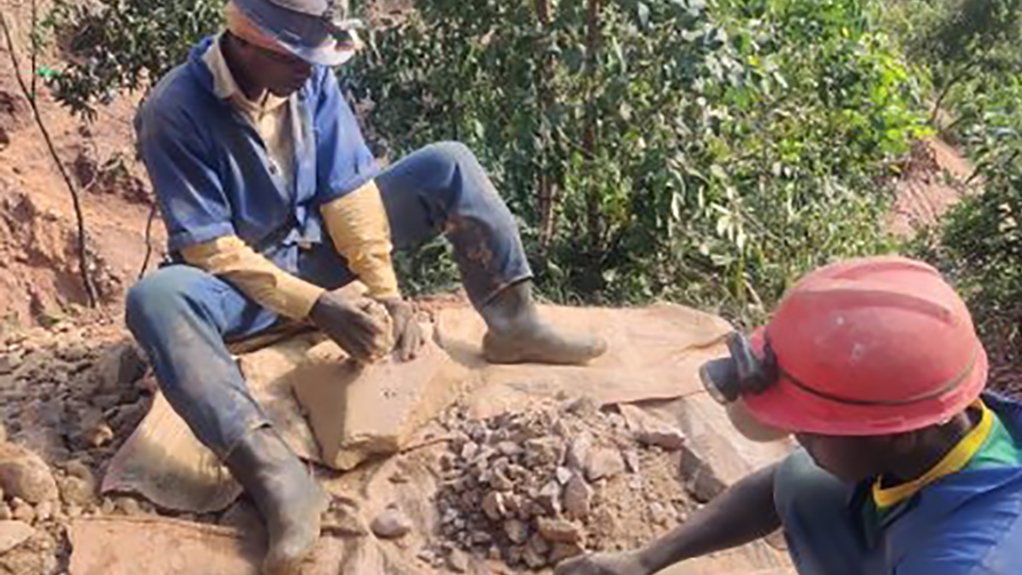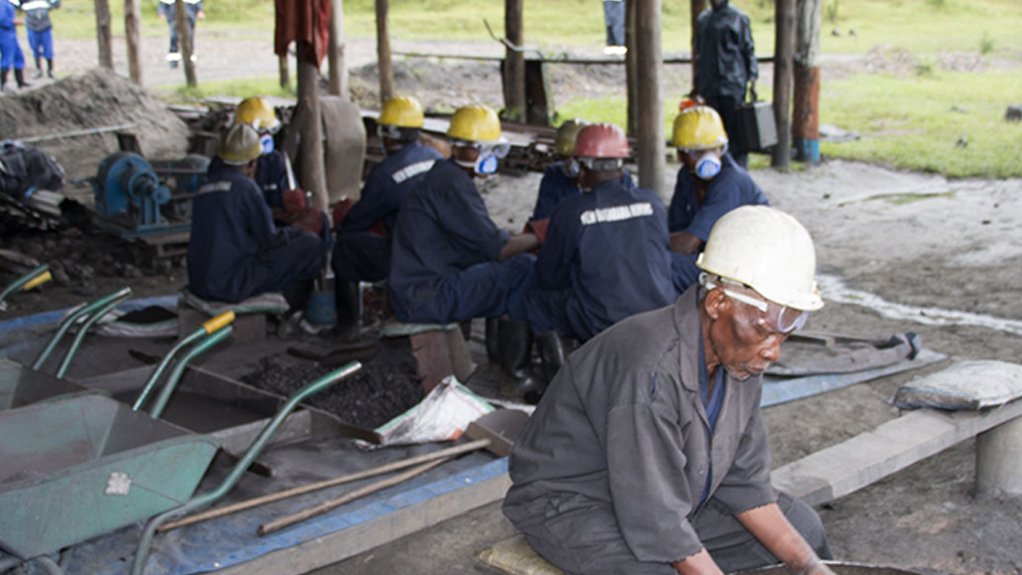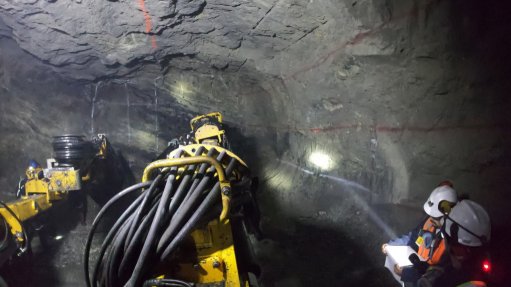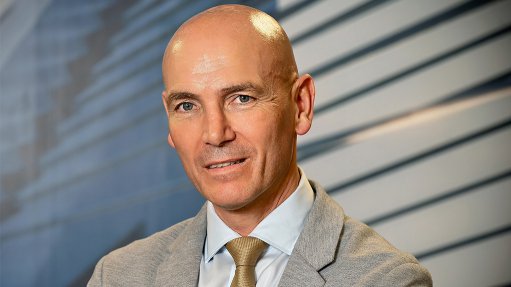Artisanal, small-scale miners still underserved



UNLOCKING VALUE Minexx’s involvement in Rwanda is expected to not only benefit artisanal and small-scale miners through access to capital but also government through taxation
SUPPORTING SURETY Through the traceability, transparency and trust afforded by blockchain, artisanal and small-scale miners can meet the expectations of their downstream customers
Artisanal mining has grown substantially in sub-Saharan Africa over the past 20 years, despite being an underserved market where accessing capital, markets and expertise is challenging, says specialist blockchain platform provider Minexx CEO Marcus Scaramanga.
Minexx helps artisanal and small-scale mines (ASMs) increase their efficiency and safety by linking them to appropriate expertise, equipment and capital using digital payments, blockchain and the Internet of Things to enhance traceability, transparency and trust in the sector.
ASM offers individuals an alternative to small-scale farming in their pursuit of better livelihoods, especially considering the current favourable prices of minerals such as gold, tin, tungsten, tantalum and niobium.
“ASMs play a significant role in the world’s mineral supply, with about 20% sourced from ASMs. However, small-scale miners or traders don’t have many trusted partners to work with because many countries and companies wanting to acquire these minerals, which are critical for the production of clean technology, such as wind turbines and electric cars, struggle to understand the complexities of the market and how to engage ASMs,” he explains.
Hence, there are various government, industry and private-sector initiatives aimed at formalising the ASM sector on which about 200-million people rely on worldwide, he says.
“Most ASMs in West Africa, the Democratic Republic of Congo (DRC) and Zimbabwe focus on mining gold, as it is the most profitable metal for miners to extract. Further, some countries, such as Ghana, have a slightly more developed, semi-industrial ASM sector, with access to heavy equipment, while ASMs in Burkina Faso use less equipment.”
In the DRC and Burkina Faso, 25% of people, including those involved in providing mineral washing, transport, financing and food services for ASMs, depend on the sector for their livelihoods.
Often linked to the funding of illegal activities, smuggling and poor environmental regulation, the ASM sector is still responsible for creating a substantial amount of value for countries through grassroot development, highlights Scaramanga, adding that there needs to be an incentive to formalise the sector.
“African governments are supportive and want to more effectively regulate the sector to derive greater value through tax, royalties and job creation, with different strategies employed by various governments.”
Ghana, which tried to effectively eradicate the country’s ASM sector about three years ago, is now trying to formalise the sector. The country commissioned 100 sets of mercury-free, gold-processing equipment, called “Gold Katcha”, last month and is amending 3% withholding tax on unprocessed precious minerals to prevent smuggling and encourage more legal mineral exports.
“Introducing legal frameworks, such as lower tax, is crucial to compete against the illegal route to market, especially in terms of minerals such as gold. Governments are also working to create a simpler regulatory framework to quickly assess and approve mining licences and introduce traceability to the sector to generate greater capital flow to semi-industrialised mining sites and formalise the sector,” he elaborates.
Notably, the Rwandan government has approved Minexx as a service provider to help ASMs access capital and supply global markets in a way that meets the Organisation for Economic Cooperation and Development’s and the International Conference on the Great Lakes Region’s responsible sourcing standards.
In collaboration with the Rwanda Mines, Gas and Petroleum Board (RMB), Minexx will deploy and supervise blockchain-powered technology to record and track mines’ key transactions, including miners’ payments, mineral traceability, minerals taxation, export process, supply chain corrective actions and community relations.
ASM operators will use Minexx digital platforms and due diligence processes to ensure that when they extract tin, tungsten, tantalum, niobium and gold, they are transported, processed, exported and traded conflict-free and legally.
Through the traceability, transparency and trust afforded by blockchain, ASMs can meet the expectations of their downstream customers, namely smelters, metal refiners and technology companies.
“Once accountability is created with supply chains, governments can establish a regulatory traceability framework to assess mine sites and close down the ASMs that should not be operating and support those that are above board, rather than having them all operate off the books,” explains Scaramanga.
Minexx’s involvement in Rwanda is expected to not only benefit ASMs through access to capital but also government through taxation, he says, adding that the company hopes to roll out its in-demand services to other mineral-producing countries on the African continent.
Scaramanga believes that many other African countries will look to learn from Rwanda – one of Africa’s most progressive mining countries – with its implementation of a mine-to- market traceability programme and its collaboration with technology partners such as Minexx.
“Other African governments have already expressed interest in doing something similar and better engaging their ASM communities to further develop the sector, which is a huge contributor to gross domestic product in most cases,” he concludes.
Comments
Press Office
Announcements
What's On
Subscribe to improve your user experience...
Option 1 (equivalent of R125 a month):
Receive a weekly copy of Creamer Media's Engineering News & Mining Weekly magazine
(print copy for those in South Africa and e-magazine for those outside of South Africa)
Receive daily email newsletters
Access to full search results
Access archive of magazine back copies
Access to Projects in Progress
Access to ONE Research Report of your choice in PDF format
Option 2 (equivalent of R375 a month):
All benefits from Option 1
PLUS
Access to Creamer Media's Research Channel Africa for ALL Research Reports, in PDF format, on various industrial and mining sectors
including Electricity; Water; Energy Transition; Hydrogen; Roads, Rail and Ports; Coal; Gold; Platinum; Battery Metals; etc.
Already a subscriber?
Forgotten your password?
Receive weekly copy of Creamer Media's Engineering News & Mining Weekly magazine (print copy for those in South Africa and e-magazine for those outside of South Africa)
➕
Recieve daily email newsletters
➕
Access to full search results
➕
Access archive of magazine back copies
➕
Access to Projects in Progress
➕
Access to ONE Research Report of your choice in PDF format
RESEARCH CHANNEL AFRICA
R4500 (equivalent of R375 a month)
SUBSCRIBEAll benefits from Option 1
➕
Access to Creamer Media's Research Channel Africa for ALL Research Reports on various industrial and mining sectors, in PDF format, including on:
Electricity
➕
Water
➕
Energy Transition
➕
Hydrogen
➕
Roads, Rail and Ports
➕
Coal
➕
Gold
➕
Platinum
➕
Battery Metals
➕
etc.
Receive all benefits from Option 1 or Option 2 delivered to numerous people at your company
➕
Multiple User names and Passwords for simultaneous log-ins
➕
Intranet integration access to all in your organisation




















